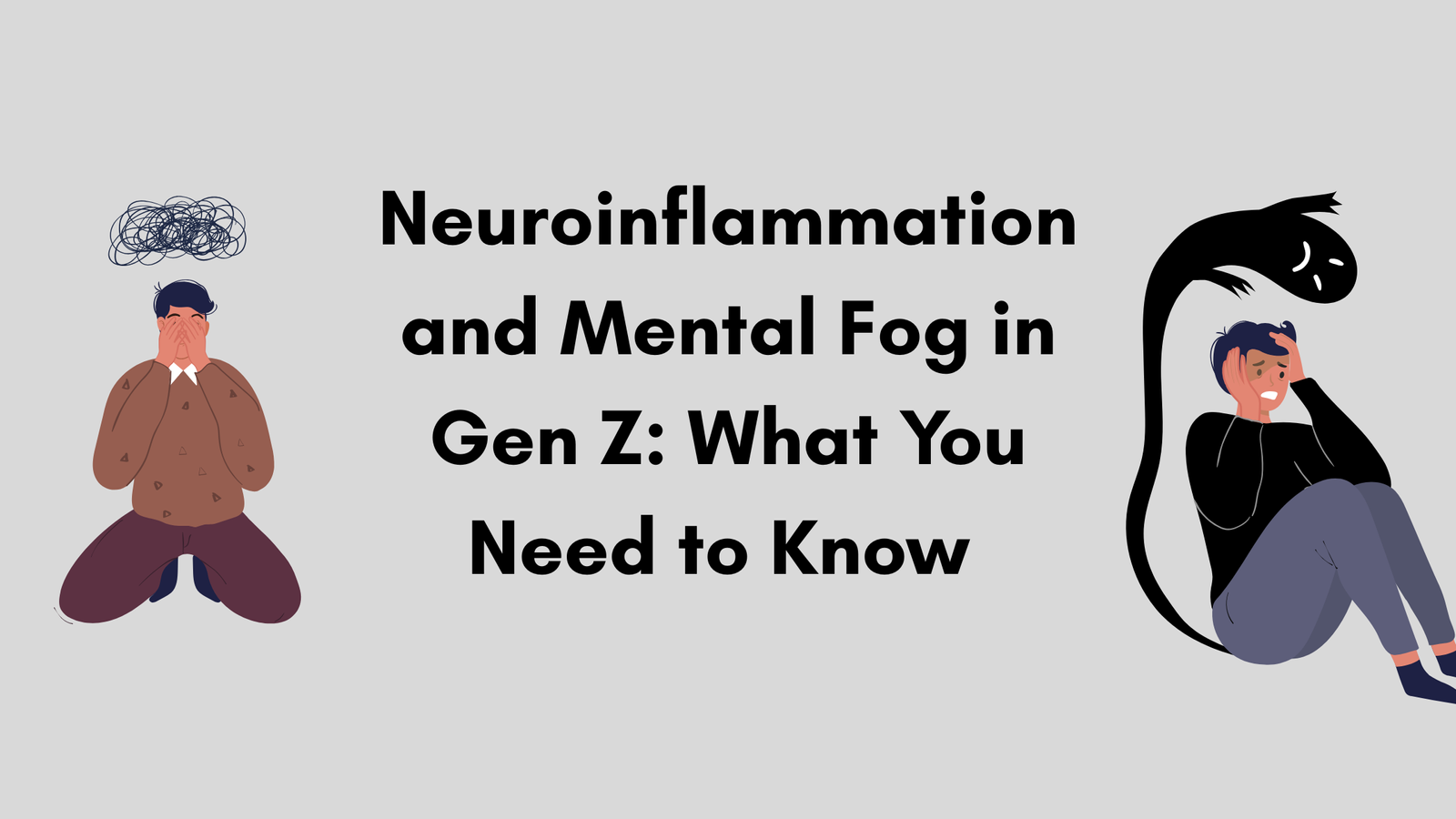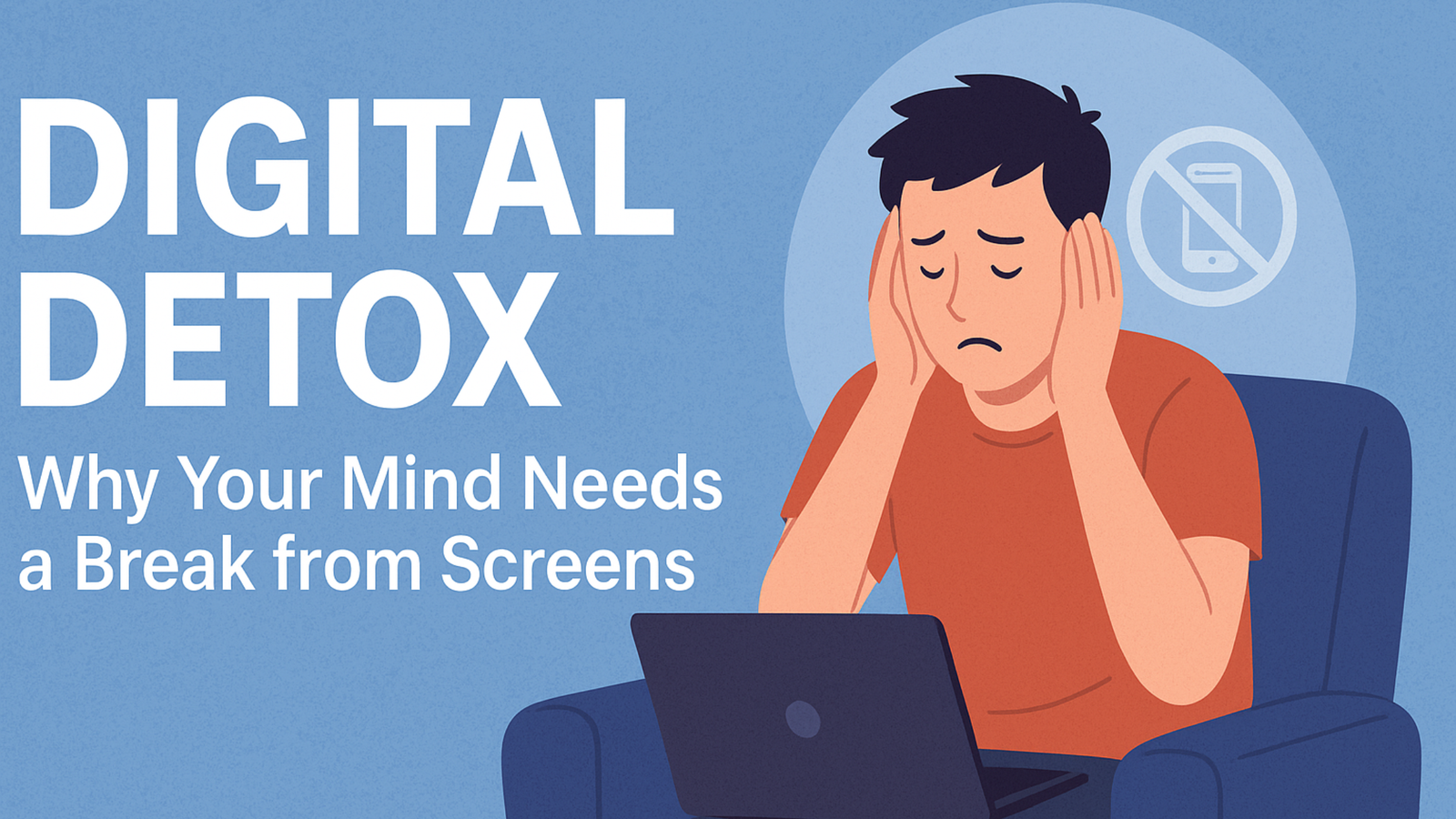“I feel like my brain is running in slow motion.”
If you’re a Gen Z student, gamer, content creator, or just someone hustling through daily digital life — chances are, you’ve experienced mental fog. That sluggish, hazy, “cloudy” brain state that makes even the simplest task feel monumental.
You’re not alone.
Mental fog, or “brain fog,” is becoming alarmingly common in Gen Z — and science is starting to understand why. One possible root cause? Neuroinflammation.
In this blog, we’ll explore:
- What neuroinflammation is
- How it’s connected to mental fog
- Why Gen Z is more vulnerable
- Signs to look out for
- How to reduce brain inflammation naturally
Let’s dive into the science — and solutions — with real empathy and real help.
What is Neuroinflammation?
Neuroinflammation refers to inflammation within the brain or spinal cord, typically caused by the brain’s immune cells — called microglia — becoming overactive. While some inflammation is part of a healthy immune response, chronic neuroinflammation can disrupt cognitive function, mood, and memory.
According to Harvard Health, inflammation plays a major role in many neurological and psychiatric conditions, from depression to Alzheimer’s.
Mental Fog: The Unseen Struggle
Mental fog isn’t just “feeling tired.” It’s a real cognitive dysfunction characterized by:
- Difficulty concentrating
- Forgetfulness
- Lack of mental clarity
- Slower processing speed
- Feeling mentally “drained” after simple tasks
A 2023 study from the NIH linked brain fog symptoms to sustained low-grade inflammation in the brain. It affects students’ focus, productivity, and mental health — even when they appear “fine” on the outside.
Why Gen Z Is Especially at Risk
Let’s be honest. Life today isn’t exactly brain-friendly.
1. Digital Overload
Gen Z spends an average of 9+ hours a day on screens, according to Common Sense Media. Constant notifications, multi-tasking, and blue light exposure tax the brain’s executive function and sleep regulation, contributing to neuroinflammation.
2. Chronic Stress and Anxiety
From academic pressure to climate anxiety to doomscrolling — Gen Z faces relentless psychological stress. A 2024 Pew Research Center report shows record-high anxiety rates in Gen Z.
Chronic stress = cortisol overload, which primes the body for inflammation — including in the brain.
3. Ultra-Processed Diets
Highly processed foods full of sugar, seed oils, and preservatives are everywhere. A BMJ study in 2022 directly linked ultra-processed food consumption to cognitive decline and higher inflammation markers.
4. Poor Sleep Hygiene
Irregular sleep, late-night scrolling, and caffeine dependence disrupt circadian rhythms, which are tightly linked to immune regulation and brain repair.
Poor sleep = impaired brain detox = more neuroinflammation.
Symptoms to Watch For
Here are subtle signs of neuroinflammation you might miss:
You feel mentally “slower” even after full sleep
You read something and immediately forget it
You need 2-3 cups of coffee just to “function”
You feel emotionally flat or irritable
You avoid mentally demanding tasks
Your brain “shuts down” under stress
Sound familiar? It’s not laziness. It’s a red flag.
The Science Behind It
When the brain is under stress (physical or emotional), microglial cells release pro-inflammatory cytokines (like IL-6, TNF-alpha). These molecules, in high amounts, impair synaptic transmission — your brain’s ability to fire signals efficiently.
A fascinating 2021 study explains how prolonged inflammation alters neurotransmitter production (like dopamine and serotonin), which are essential for focus and mood.
Even mild neuroinflammation can affect the prefrontal cortex, which is responsible for:
- Focus
- Decision-making
- Short-term memory
- Emotional regulation
How to Combat Neuroinflammation & Brain Fog
Here’s the good news: your brain can heal. Here are proven lifestyle shifts to start today:
1. Anti-Inflammatory Diet
- Eat more: fatty fish, blueberries, turmeric, leafy greens, olive oil
- Avoid: added sugar, trans fats, seed oils, processed snacks
- A Harvard study backs up these dietary changes for lowering chronic inflammation.
2. Prioritize Sleep Consistency
Aim for 7.5–9 hours of sleep and consistent wake/sleep times. Your brain performs critical glymphatic system clean-up during deep sleep.
3. Digital Detox Techniques
Use tools like:
- Forest (focus timer)
- F.lux or [Night Shift] for screen dimming
- Phone-free mornings or 1 hour before sleep
4. Move Your Body
Exercise boosts BDNF (Brain-Derived Neurotrophic Factor) — your brain’s miracle grow. Just 20 minutes of brisk walking daily can reduce inflammation and improve cognition, per this study.
5. Adaptogenic Support (Optional)
Supplements like Ashwagandha, Rhodiola Rosea, and Lion’s Mane show promise in reducing stress and neuroinflammation. Always consult a doctor before supplement use.
Extra Tip: Build Brain-First Routines
Here’s a simple framework for Gen Z:
Morning:
Hydrate
Natural light exposure
Movement + Protein breakfast
Afternoon:
Deep work (no multitasking)
Real food, low sugar
Mid-day walk or stretch
Evening:
Screen off 1 hour before bed
Journaling or light reading
No caffeine after 3 PM
Related Read:
Immunity 101: Simple Lifestyle Changes to Boost Your Immune System Naturally
Many of the brain-health tips above also strengthen your overall immune system. Don’t miss our guide to simple, science-backed immunity boosters.
You’re Not Alone, and It’s Not “All in Your Head”
Mental fog can feel isolating — but it’s increasingly common, and you can take control. Addressing neuroinflammation is about healing your brain from the inside out, slowly but surely.
Whether you’re studying for exams, building your career, or just trying to stay afloat in a noisy world, give your brain the love it deserves.
Because clarity isn’t just about productivity — it’s about peace.
Disclaimer
This blog post is for educational purposes only and does not constitute medical advice. Please consult a qualified healthcare professional before making any significant changes to your diet, lifestyle, or supplement routine.









